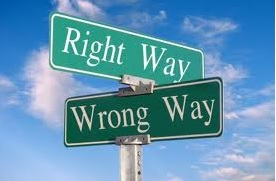What does the Bible say about Humans and their unique behaviors? In The Genesis One Code it is explained that the majority of creation events were making something from something else using physical laws. In other words, these creation events are explainable by science. However, the Genesis creation account contains three exceptions to this – three events that are creations out of nothing – thus unexplainable by science. None of these three events have been explained by science. In fact, as time goes by and we learn more these three events get harder and harder to explain. One of these three events, the creation of humans and in particular our unique behaviors, is dealt with in the bestselling book The Language of God: A Scientist Presents Evidence for Belief.
In The Language of God, Collins, an American physician-geneticist noted for his discoveries of disease genes and his leadership of the Human Genome Project, discusses his Moral Law Argument. “After twenty-eight years as a believer, the Moral Law stands out for me as the strongest signpost of God” (p. 218), he says. Moral Law is an argument for the existence of a God. Collins makes two main arguments: the first is that all cultures and religions of the world endorse a universal, absolute and timeless Moral Law which is a unique property that separates humans and animals. The Moral Law includes altruism which is more than just reciprocity (“You scratch my back, and I’ll scratch yours”). His second argument is: “Selfless altruism presents a major challenge for the evolutionist” (p. 27).
In The Broken Gift: How did we get here? I work though the scriptures on the creation of man. The Bible is clear – human bodies were made much the same way as animal bodies, thus our physical bodies and how they came to be should be explainable by science. However, human souls are unique creations infused into the bodies – not explainable scientifically. These souls come ready made with speech, free choice and a creative process. The details of how these souls affect our behavior are explicitly provided in the sources. They match what science has concluded are “modern human behaviors” which separate humans from other animals and from “human like” species now extinct. Collins’ Moral behaviors are a subset of the broader human behaviors explicitly called out in the sources, hundreds and thousands of years ago, before science and history had determined that these are unique to us.

September 30, 2013 In Blog
